Published

- White Papers
- 20.03.2014 07:00 pm
The responsibilities of the treasurer are expanding and commodity management is increasingly moving from procurement to treasury. In this paper, Reval demonstrates how technology can help treasurers better understand commodity exposures and more effectively implement hedging programs.
Treasury is in different stages of transformation around the world, and what is included in treasury’s remit is different too. There is a notable increase amongst multinational corporates for treasury to manage commodity risk. We have seen this at Reval, and a recent gtnews risk survey indicates that 44% of treasurers are already responsible for commodity risk management.
This is the case for a few reasons:
- Greater need for global visibility of all financial risks
- Understanding the correlations amongst different asset classes
- Optimizing hedging strategies for significant cost savings
- Growing volatility of commodity prices around the world
Previously, many companies – commodity consumers – were reluctant to hedge commodity price risk as they believed their shareholders expected them to be fluctuating according to the market prices. However, the volatility and subsequent impact on the bottom line is no longer sustainable, and hence needs to be actively managed and hedged. Similarly, the banks that are financing those companies are not in favour of this volatility and are looking for more secure profit margins.
This is relevant not only for consumers and producers of commodities, but also for many organisations that have some exposures to non-financial items. For example, airlines are exposed to jet fuel and diesel, but also to emissions as they look to reduce their carbon foot print. Retailers are exposed to fuel costs for deliveries as well as many soft exposures – wheat in the cereal, in the biscuits, and in the beer they sell, for example. Beverage companies not only are exposed to the ingredients to make the beverage, but also the paper, aluminium and plastic costs.
Commodity exposure management is a complex area, but getting on top of commodity risks can have a significant financial impact. The following guide helps treasurers better understand what they need to determine the Return on Investment of commodity risk management:
- Making exposures across the company visible
- Monitoring and assessing risk correlations
- Considering the impact of IFRS 9, IFRS 13, EMIR and Dodd Frank
- Leveraging SaaS technology
Please fill up these fields in order to read the publication.
Other White Papers
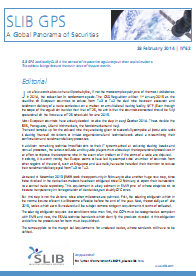
- Reports
- 16.03.2014 07:00 pm
Please fill up these fields in order to read the publication.
Other Reports
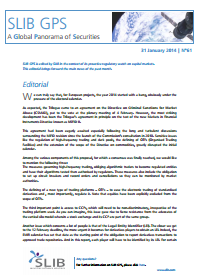
- Reports
- 04.03.2014 07:00 pm
We can truly say that, for European projects, the year 2014 started with a bang, obviously under the pressure of the electoral calendar.
As expected, the Trilogue came to an agreement on the Directive on Criminal Sanctions for Market Abuse (CSMAD), put to the vote at the plenary meeting of 4 February. However, the most striking development has been the Trilogue's agreement in principle on the text of the new Markets in Financial Instruments Directive known as MiFID II.
This agreement had been eagerly awaited especially following the long and turbulent discussions surrounding the MiFID revision since the launch of the Commission's consultation in 2010. Sensitive issues like the regulation of high-frequency trading and dark pools, the defining of OTFs (Organised Trading Facilities) and the extension of the scope of the Directive on commodities, greatly disrupted the initial calendar.
Please fill up these fields in order to read the publication.
Other Reports
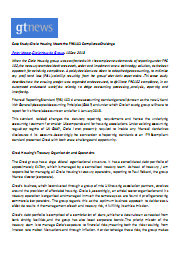
- Case Studies
- 03.03.2014 07:00 pm
When the Circle Housing group was confronted with the complex new demands of reporting under FRS 102, the treasury team decided to research, select and implement a new technology solution, as the best approach for achieving compliance. A policy decision was taken to adopt hedge accounting, to minimise any profit and loss (P&L) volatility resulting from the group’s derivative operations. This case study describes how the ensuing project was organised and executed, to facilitate FRS 102 compliance, in an automated end-to-end workflow relating to hedge accounting processing, analysis, reporting and interfacing. Financial Reporting Standard (FRS) 102 is a new accounting standard generally known as the new UK and Irish Generally Accepted Accounting Principles (GAAP) and under which Circle Housing group will have to report for its financial accounts on and after 1 January 2015. This standard radically changes the statutory reporting requirements and hence the underlying accounting treatment for smaller UK companies and for housing associations. Under existing accounting regulatory regime of UK GAAP, Circle is not presently required to include any financial derivatives disclosures in its accounts. Accordingly the conversion of reporting standards to an IFRS compliant standard presented Circle with both a new challenge and opportunity.
Please fill up these fields in order to read the publication.
Other Case Studies
- 05:00 am
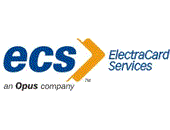
ElectraCard Services (ECS), provider of software and processing solutions for electronic payment systems, today announced that Nepal Electronic Payment Systems (NEPS) has selected ECS’s electra iTx platform to setup a shared switch infrastructure to enable electronic payment transactions. NEPS is a company that is promoted by a group of seven Nepali Banks with the mandate to setup a shared e-payments switch and card infrastructure.
NEPS has undertaken the shared switch initiative with the aim of achieving robustness, security and cost effectiveness in electronic retail payment systems. The shared switch is a milestone in the Nepal banking industry which was in the making for the last few years and now, a reality under the direction and leadership of NEPS. Currently this is a joint consortium between seven banks in Nepal with more banks expected to join.
With the NEPS shared infrastructure solution, the banks will be able to meet the growing regulatory requirements as well as provide their customers with secure transactions. Banks can offer customers additional products and services and meet all PCI-DSS and EMV compliance requirements.
“We are very excited to partner with NEPS and be a part of this revolutionary project in Nepal. With the large growth in banking needs and the need for stronger security, it is essential for banks to move to a newer platform and offer new services faster,” said Mr. Ramesh Mengawade, CEO, ElectraCard Services.
Mr. Anish Tamrakar, CEO, NEPS, said, “There is an imminent need for the banks to upgrade their platforms to meet regulatory requirements as well as ensure safety of their customers, hence the banks of Nepal have come together to set up a common platform to address the needs in a cost effective manner. ElectraCard Services brings with them the guarantee of over 200 successful implementations globally and expertise in Nepalese electronic payments.”
After a careful process of selection and evaluation of various global players, ECS was selected because of its products’ modern architecture and excellent references from its existing customers. The electra iTx suite with its proven scalability and support for 24x7 multi-channel payments will provide the bank with a unified customer view and seamless integration across channels. ECS has a strong partner in Imark Pvt. Ltd., which is one of the largest IT systems integrator in Nepal.
Related News
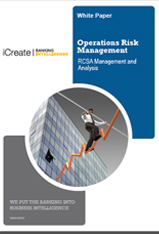
- White Papers
- 22.02.2014 07:00 pm
Please fill up these fields in order to read the publication.
Other White Papers
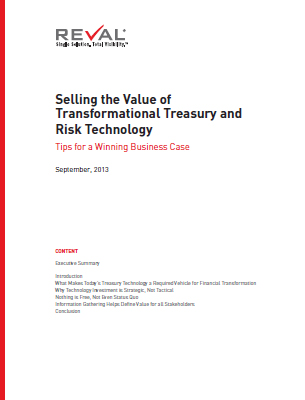
- White Papers
- 20.02.2014 07:00 pm
The responsibilities of the treasurer have expanded over the last few years as the disconnect between what a treasurer needs to support his or her broad remit and what the Chief Financial Officer is willing to fund continues to run deep. In this paper, Reval demonstrates how treasurers can frame the business case for transformative technology and sell the value of a strategic investment in next generation treasury technology. Challenges that treasurers face today are different than they were five years ago. And treasurers know that five years from now there will be new, more complex challenges they will be facing. As stewards of their company’s financial nerve center, treasurers are living with the reality that new responsibilities and financial risks are lurking around every corner. In fact, while 86% of those surveyed in 2013 by the Association of Financial Professionals say that risk assessment is very important, 53% say they have greater difficulty today anticipating risks to their companies’ earnings than they did before the global financial crisis. In fact, the visibility of these risks – regulatory and market risks among the most pressing and unpredictable – has reached the boardroom level at 80% of companies Deloitte surveyed in the second quarter of 2013. With risk concerns at this level, the treasurer is increasingly relied upon as a strategic business partner in delivering on corporate performance. Consequently the responsibilities of the treasurer have expanded over the last few years as well. Still, the disconnect between what a treasurer needs to support his or her broad remit and what the Chief Financial Officer is willing to fund continues to run deep.
Please fill up these fields in order to read the publication.
Other White Papers
- 04:00 am
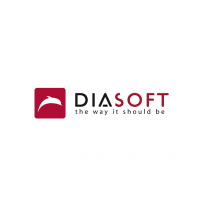
Diasoft, a global provider of cutting-edge software solutions for financial institutions, is shortlisted in “Cloud Computing Innovation of the Year” category of FSTech Awards 2014 jointly with BFA Bank.
Now into its 14th year, the FStech Awards recognizes excellence and innovation in the field of information technology within the UK and EMEA financial services sector. Diasoft and BFA Bank fended off competition from numerous of entries to be shortlisted in “Cloud Computing Innovation of the Year” category. The shortlisted companies of this nomination demonstrate excellence in the area of cloud computing for 2012/13, including new strategies, evidence of success by utilizing the cloud, and how the cloud computing innovation has brought customers cost and efficiency benefits.
Diasoft and BFA Bank are recognized by FStech Awards for the complex automation of retail business of the bank through implementation of innovative FLEXTERA solution.
In order to deliver the system in the shortest timeframes Diasoft offered to BFA Bank a radically different approach to building a banking environment – implementation of its cutting-edge FLEXTERA based on innovative cloud infrastructure.
Cloud deployment of FLEXTERA allowed the bank to acquire numerous benefits, including flexibility and scalability to meet the growing business demands, reduction of IT costs and resource sharing among a large number of users.
“Recognition from one of the leading IT associations on their best-of lists is a one more proof point that the financial institutions around the globe are benefiting from Diasoft`s cutting edge solutions available for cloud implementation”, said Dmitry Zubarev, CEO, Diasoft. “Today all of the FLEXTERA Products are available for Cloud Deployment — an alternative to the on-site implementation of an application. Cloud technology allows small and mid-size financial institutions to easily get access to the infrastructure, platform and software, and ensures considerable time and budget savings already at the implementation stage”.
This year Diasoft launched a private cloud service, allowing for customers screening against Public Officials (PO) and Politically Exposed Persons (PEPs) lists. New cloud service from Diasoft - “Screen your customer!” - is used for the automation of business processes of financial institutions in accord to the requirements of the Law "On Anti-Money Laundering and Combating Terrorism Financing".
FSTech honor reflects Diasoft`s consistent record of delivering the solutions that financial market needs to simplify operations, minimize costs and gain secure IT infrastructures. Recognition from FSTech come on the heels of numerous other accolades for Diasoft – the company is positioned as a leader in Gartner Magic Quadrant for International Retail Core Banking, included into the FinTech 100 ranking of the Global Technology Providers of the Financial Services Industry, awarded with the “Best IT-solution” accolade by Retail Finance Awards 2013, named to Software Magazine’s 31st Annual Software 500 ranking among other recognitions.
Related News
- 04:00 am
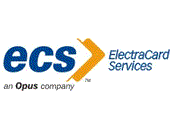
ElectraCard Services (ECS), a leading provider of software and processing solutions for electronic payment systems, today announced that they have undertaken the end-to-end management of NMB Bank credit and debit cards. ECS will offer these services through their world class PCI DSS certified data centre.
NMB Bank Limited, one of the leading commercial banks in Nepal, has been licensed as ‘A’ class financial institute by Nepal Rastra Bank in May 2008. Over the past fifteen years the bank has been successfully providing banking and financial services in the Nepalese financial market. NMB Bank joins over 9 other banks in Nepal that are already running on the ECS payment platform.
ECS will provide the Bank a comprehensive debit and credit processing solution. The EMV compliant card management systems provide the Bank with complete management of the cards lifecycle, and support all major card networks like VISA®, SCT and NPN. Selection of ECS at NMB was facilitated by Imark Pvt Ltd., one of the largest local IT systems integrators in Nepal, and will help the bank to achieve its ambitious business objectives of expanding its credit and debit card base.
ECS provides global institutions with end-to-end Processing Services to suit their individual market requirements. With superior software technology, agile processing, cost effective deployment, continuous innovation and a PCI-DSS certification, ECS provides customers with an outstanding value proposition.
“For banks to provide customers with the best banking solutions, technology becomes crucial. We were the ideal technology partner given our modern platform, extensive expertise in migrations globally and adept understanding of the regulatory and banking requirements of Nepal. We are extremely happy to join forces with NMB Bank and help them offer customers better service, wider reach and improved security. With the addition of NMB Bank, the electra platform becomes the foremost platform on which card issuance is carried out in Nepal, with a 75% market share,” said Mr. Ramesh Mengawade, CEO, ElectraCard Services.
Mr. Upendra Poudyal, CEO, NMB Bank, said, “We chose ECS due to its global leadership, unparalleled deployment experience and installed base in Nepal. It also offers unrivalled functionality over a broad solution set, as well as its seamless integration capability. ECS will provide us with a solid platform to manage our growth efficiently. The platform will help us quickly and cost-effectively deliver new products and services as we grow and serve our customers in Nepal.”
With the move to ECS processing platform, NMB Bank will also be able to provide their customers additional features on the cards including secure ecommerce transactions and reward points.
Related News
- 05:00 am
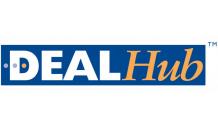
DealHub (Option Computers Ltd)announced today that Abu Dhabi based First Gulf Bank (FGB), one of the major leading banks in the UAE, is now using a bespoketreasury managementsolution fromDealHub. The system allows the bank to monitor activity, positions and profit and loss (P&L) across all trading channels in real time.
Chris Wilmot, Group Head of Treasury & Global Markets at First Gulf Bank, comments: “As our Global Financial Markets trading business expands, it’s critical that we’re able to continue to manage our operations efficiently, particularly as e-trading volumes increase. After evaluating a number of potential providers, we chose DealHub’s treasury management solution for two key reasons. Firstly, through our longstanding relationship with DealHub, we knew we could rely on them to deliver. Secondly, their ability to customise the solution to our specific workflows and requirements was critical. The system has been live now for several weeks and we’re benefiting from real-time insight into trade volumes, counterparty exposure and P&L. The system is a vital foundation for the continued expansion of our e-trading business.”
The treasury management solution went live at FGB in early December and builds on existing DealHub infrastructure at FGB, which consolidates post trade feeds from allFX trading platforms into a single STP feed for downstream integration. The new solution sits ahead of the bank’s existing risk system and provides FGB traders and management with highly customised overview and workflow tools.A flexible dashboard allows them to see positions by trader, currency, venue, or counterparty, and a consolidated blotter is easy to filter and query, pinpointing the exact information required to manage trading activity and profits in real time. Flexible workflow tools streamline or automate complex tasks, including manual trade capture, revaluations, position transfers, end of day rolls and multi-instrument risk reporting.
“The successful roll out of our treasury management solution at FGB demonstrates the huge value that DealHub’s integrated post trade services can offer,” comments Chris Leaver, COO at DealHub. “Building on a normalised backbone of post trade connectivity, our flexible rules-based components can be tailored to specific bank requirements, providing custom position and P&L management tools, while automating complex trade processing tasks, all in a fraction of the time and effort required to customise and deploy a traditional risk system.”
Combining the widest range of market connectivity, with flexible trade processing and overview modules, DealHub’s comprehensive post trade solutions are used by a range of financial markets customers, including the majority of the world’s largest banks, to consolidate trades from multiple venues and counterparties for overview, processing and onward delivery into risk and back office systems.









